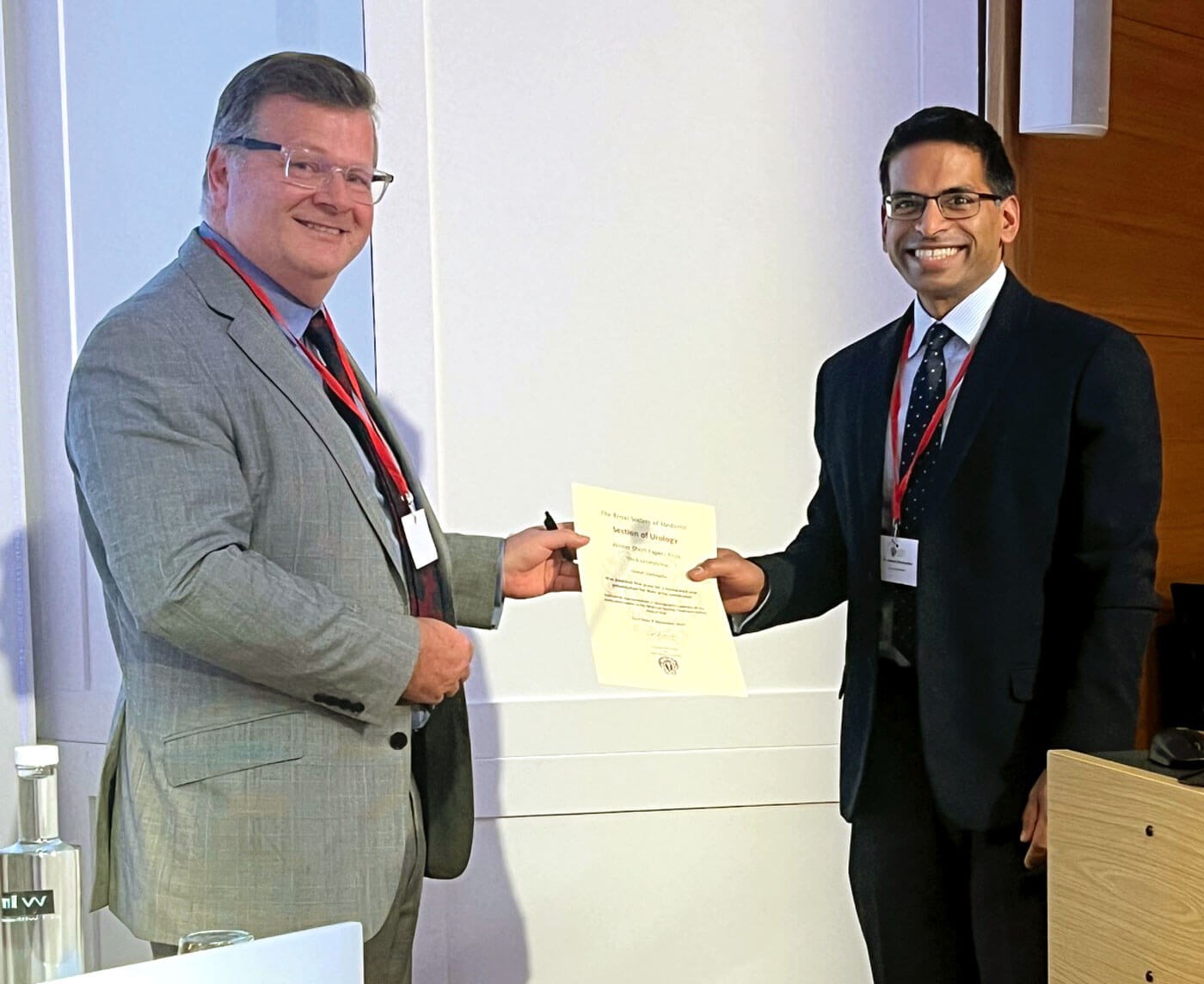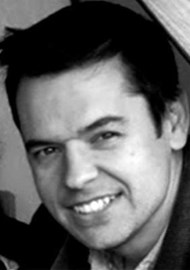December 2023 marked the latest RSM Urology Section event. Alongside the Winter Short Papers Prize presentations, the theme of the day was major urological cancers and the role of the urologist in patient management within the multidisciplinary team (MDT). We were extremely fortunate to have some highly distinguished speakers and session chairs to guide a hybrid audience in person and virtually from across the UK.
Prostate cancer
Professor Nicholas James, Professor Imran Ahmad, Dr Alexander Martin and Professor Vincent Gnanapragasam alongside session chairs Dr Karen Tipples and Ms Louisa Fleure highlighted some key responsibilities of the modern-day urologist. Namely, identifying high-risk populations (the Man Van being an excellent example), counselling prostate cancer patients properly by understanding the natural history of the disease and the importance of life expectancy and using readymade tools such has the Predict Prostate calculator (https://prostate.predict.nhs.uk). Once a diagnosis of prostate cancer has been made, all speakers highlighted the importance of acknowledging the side effects from all treatments and the crucial role that no treatment (surveillance) can play. Modern day developments in radiotherapy and radical prostatectomy techniques to minimise side effects were discussed.
Testicular cancer
A fantastic session from Dr Jonathan Shamash chaired by Professor Prabhakar Rajan, highlighted the interplay between surgeon and oncologist, in particular, with regards small testis tumours <20mm, and the timing of retroperitoneal lymph node dissection in metastatic germ cell tumours.
Bladder cancer
Three brilliant talks from Professor Rik Bryan, Professor Nikhil Vasdev and Professor Nicholas James followed by a panel discussion chaired by Ms Jo Cresswell and Dr Bernadett Szabados highlighted some important points. Our understanding of the biology of bladder cancer is vastly improving both in terms of muscle-invasive (MIBC), and more latterly non-muscle invasive disease (NMIBC). This is bringing renewed hope to the search for sensitive and specific biomarkers. Increasing evidence, including from the recent UK-led iROC study, appears to be demonstrating a benefit for radical cystectomy performed robotically with intracorporeal diversion over an open approach for morbidity outcomes whilst maintaining similar oncological results. The need for debulking TURBT in the presence of imaging (MRI) suggestive of MIBC seems to be of little value and perhaps a flexible cystoscopic biopsy might be enough. The panel emphasised the importance when counselling our patients that there is genuine clinical equipoise between radical cystectomy and chemoradiotherapy in most cases. This is particularly important to consider in those with T0 histology, in those after an excellent response to neo-adjuvant chemotherapy, or those with BCG refractory NMIBC.
Histopathology
The audience were treated to a fantastic lecture from Professor Dan Berney. Without a pathological diagnosis, as urologists, we wouldn’t be able to counsel and treat most of our cancer patients. The relationship between the two specialties therefore is long standing and indeed two previous Presidents of the Urology Section of the RSM have been pathologists (Cuthbert Dukes and Roger Pugh). Prof Berney reminded us that histological interpretation is not black and white. As a team we should challenge each other, pathologists asking urologists to provide as much detailed relevant clinical information as possible, and urologists challenging pathologists to provide a definitive report with the necessary information only to make a clinical decision.
Kidney cancer
Professor Grant Stewart highlighted work currently being undertaken to look at kidney cancer screening and in particular the Yorkshire Kidney Screening Trial which has finished recruitment and results are awaited. Professor Tom Powles discussed the role and development of systemic treatments in kidney cancer and in particular the KEYNOTE-564 study demonstrating an overall survival benefit for patients at high risk of recurrence following nephrectomy when treated with Pembrolizumab versus placebo. This is a paradigm shift. Patients with T2 disease and nuclear grade 4 or sarcomatoid differentiation, and patients with T3 or higher disease or metastatic disease that have undergone nephrectomy plus metastatectomy with subsequent no evidence of disease should be referred to medical oncology for consideration of adjuvant treatment. Professor Maxine Tran discussed alternative treatments to partial nephrectomy for small renal masses and the difficulty setting up and recruiting to a randomised controlled trial for surgical interventions. A panel debate chaired by Mr Prasad Patki and Mr Ravi Barod provoked lots of discussion points.
Future of urological cancer surgical training
The final session of the day saw presentations from Mr Justin Collins discuss the future of robotic training including standardised curricula, better simulation and more advanced mentorship. This was followed by Professor Phil Cornfield who highlighted that major open surgery will always be required with some eye-opening case examples and the likelihood of further centralisation of these services with greater MDT working with our colorectal and gynaecology colleagues.

Figure 1.
Winter Short Papers Prize
Eight abstracts were short-listed. Following a closing address from Professor James Green, President RSM Urology Section, first place was awarded to Mr Joseph Santiapillai for his work demonstrating the impressive representation of participants recruited to the Nephron Sparing Treatment (NEST) clinical trial (Figure 1). The best poster prize was awarded to Samuel Moulding.
We hope the day provided a valuable insight and update into the current management and future trends of urological cancer treatment. There is no doubt that there is an ever increasing and greatly beneficial role of MDT working, but, as urologists it would seem we are not redundant, yet!
We would like to thank Professor James Green (President RSM Urology Section), Mr Jonathan Goddard (Secretary RSM Urology Section) and the RSM team for their support in organising the day.





